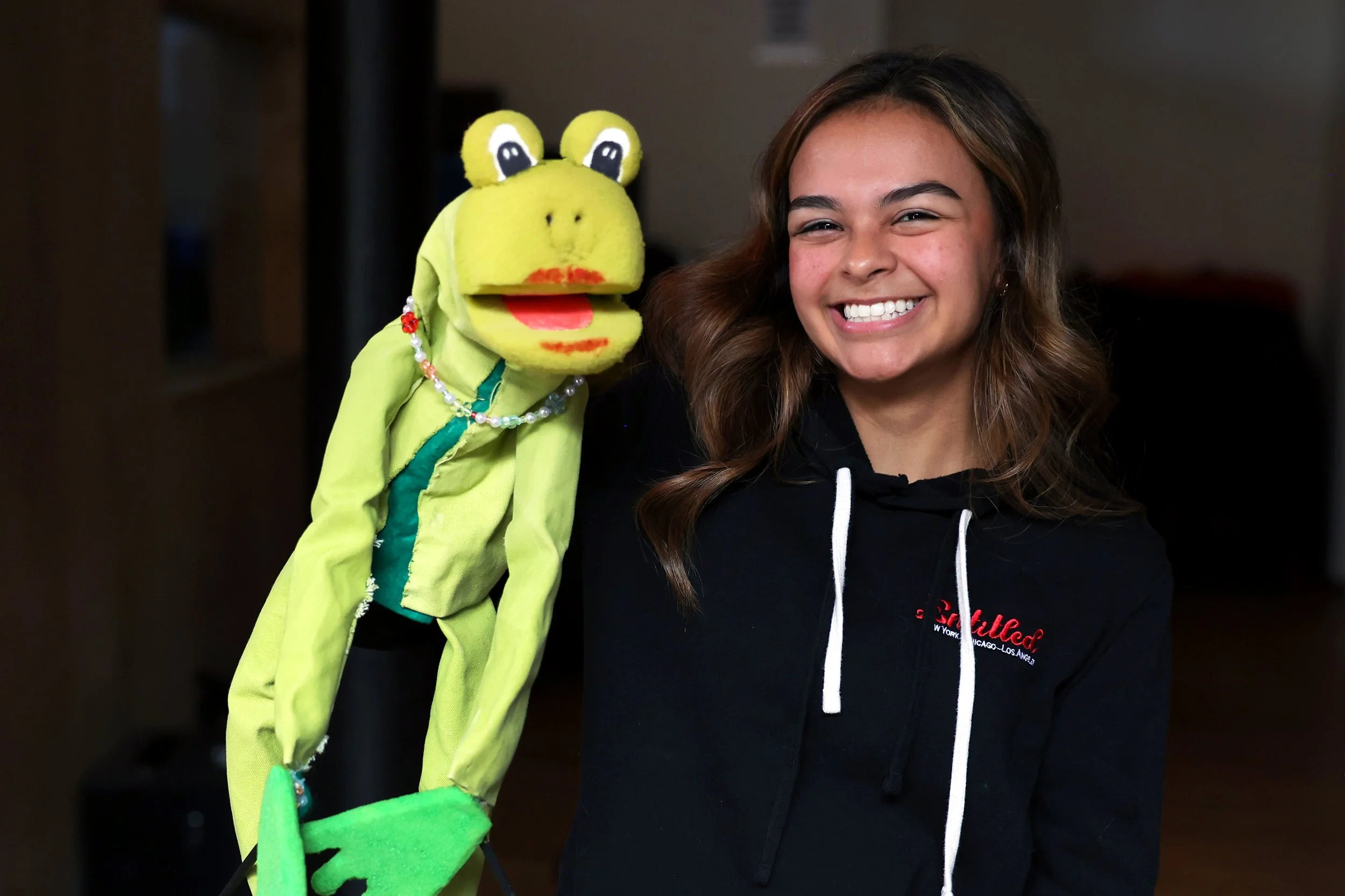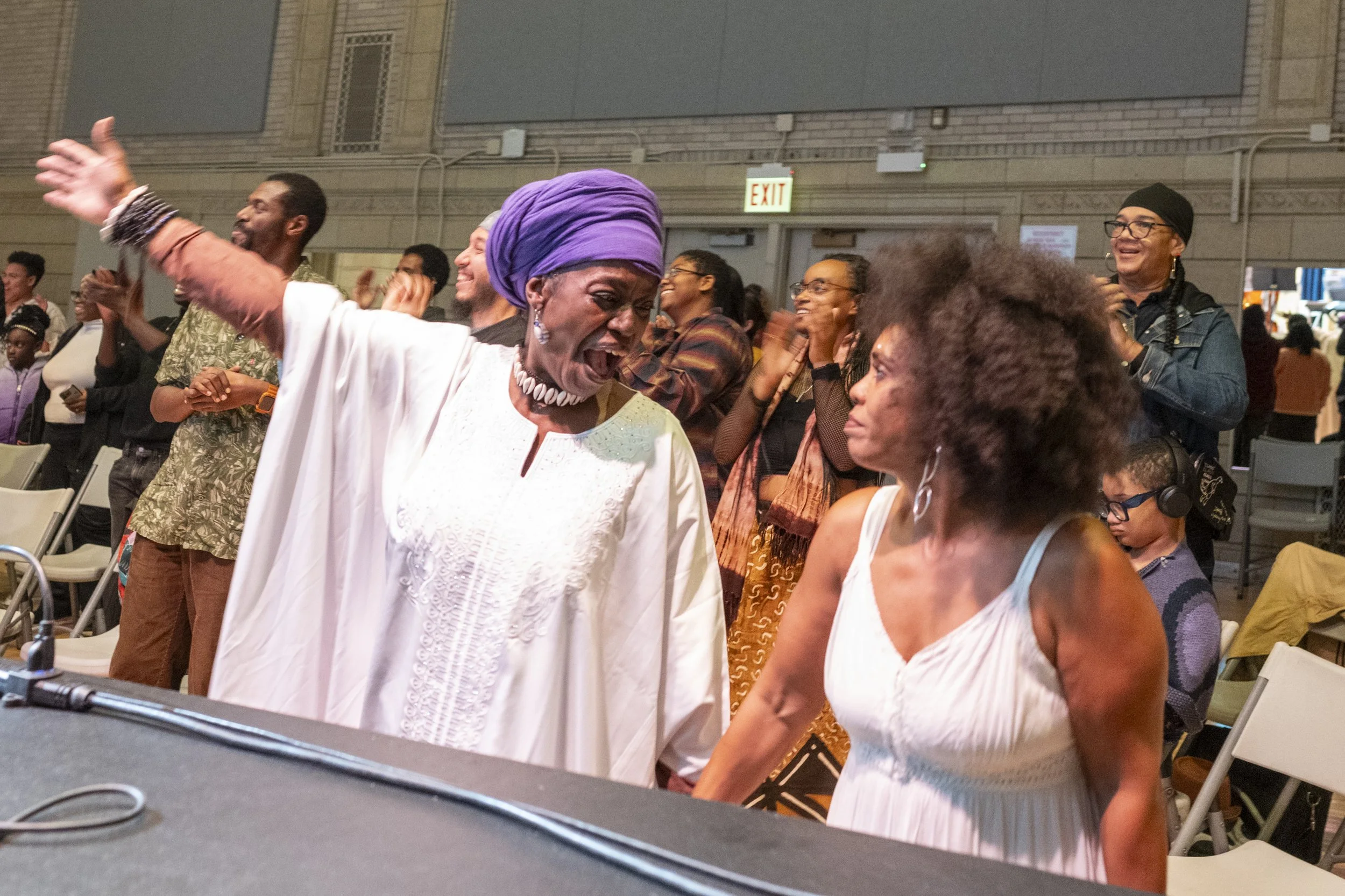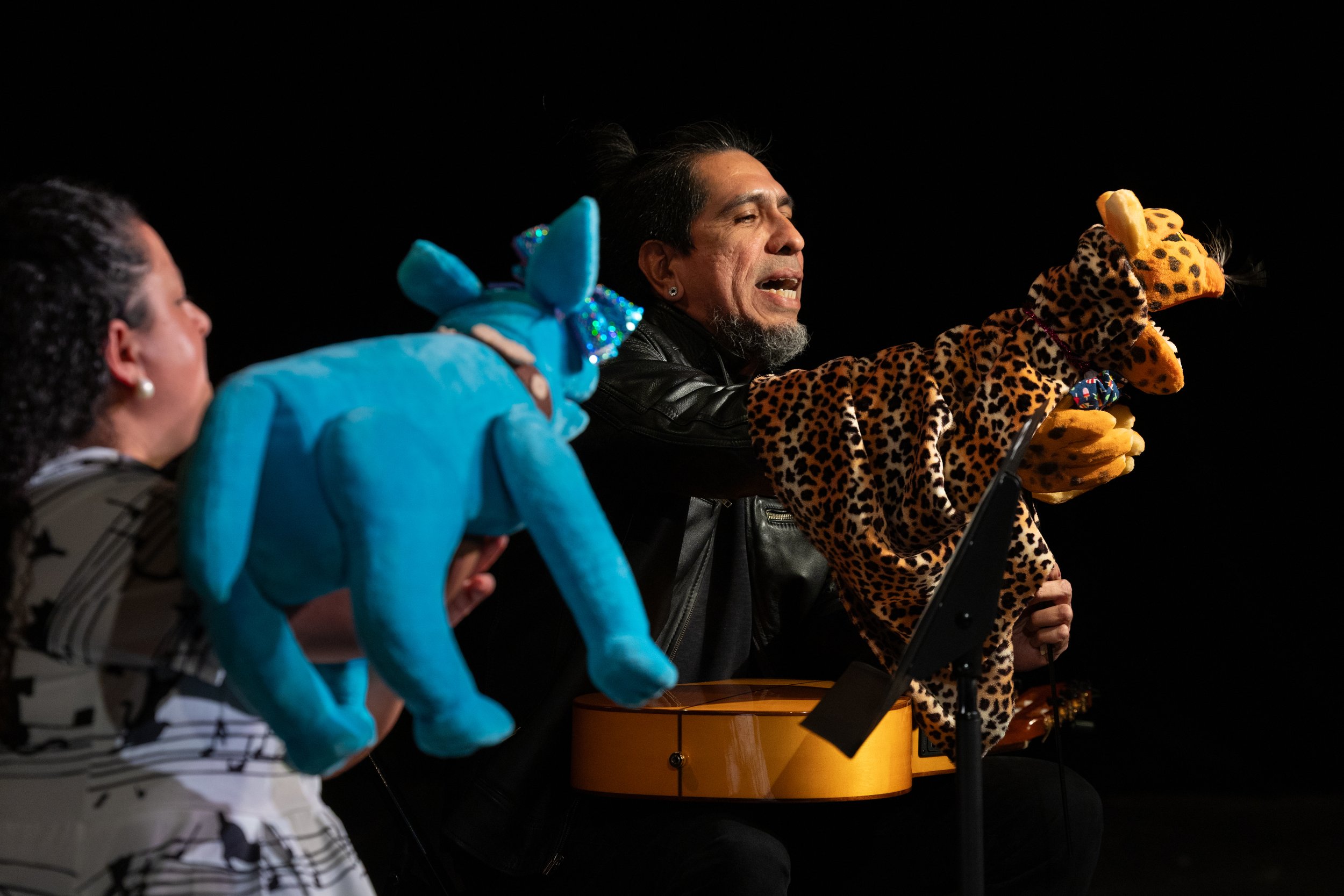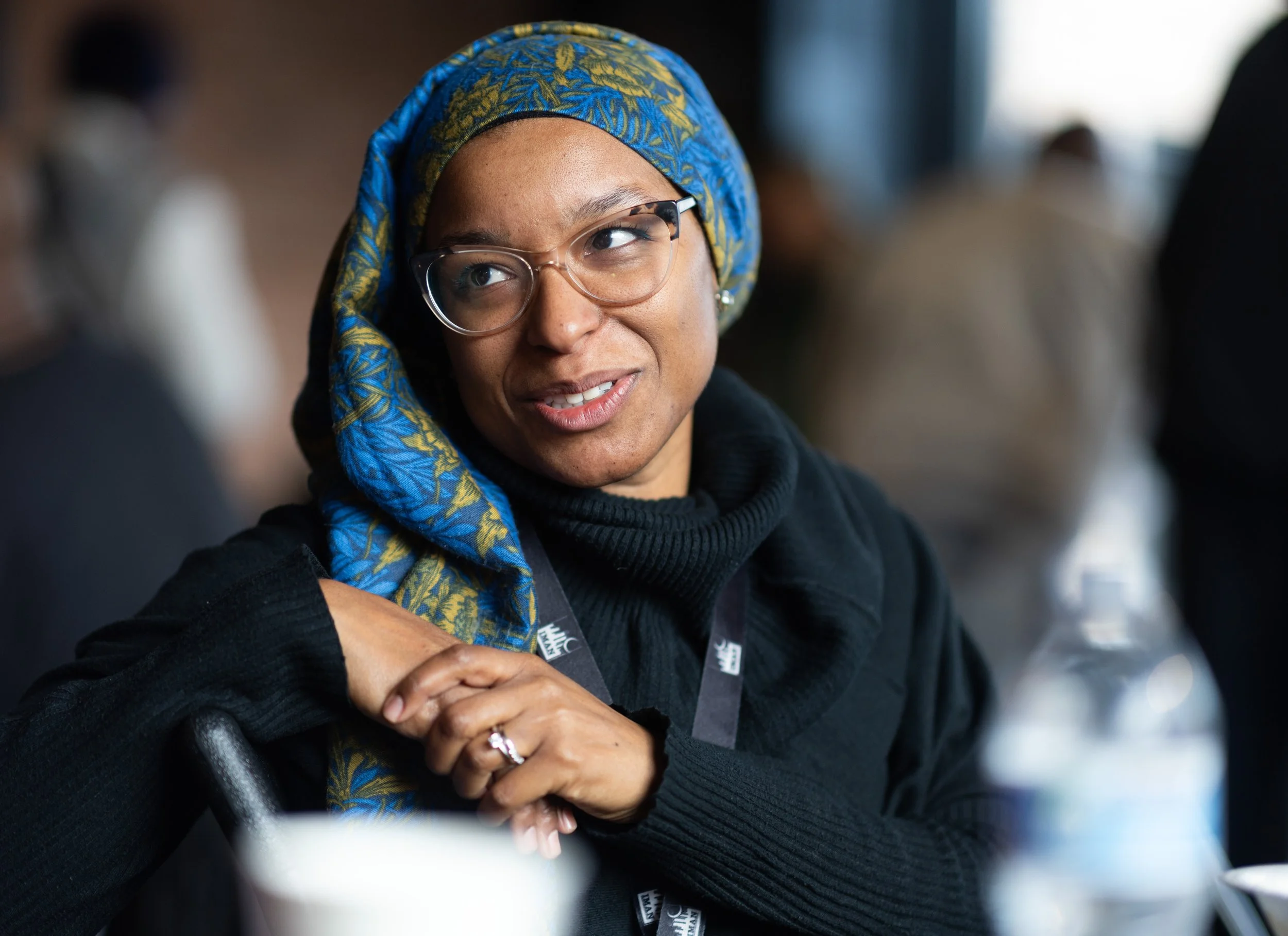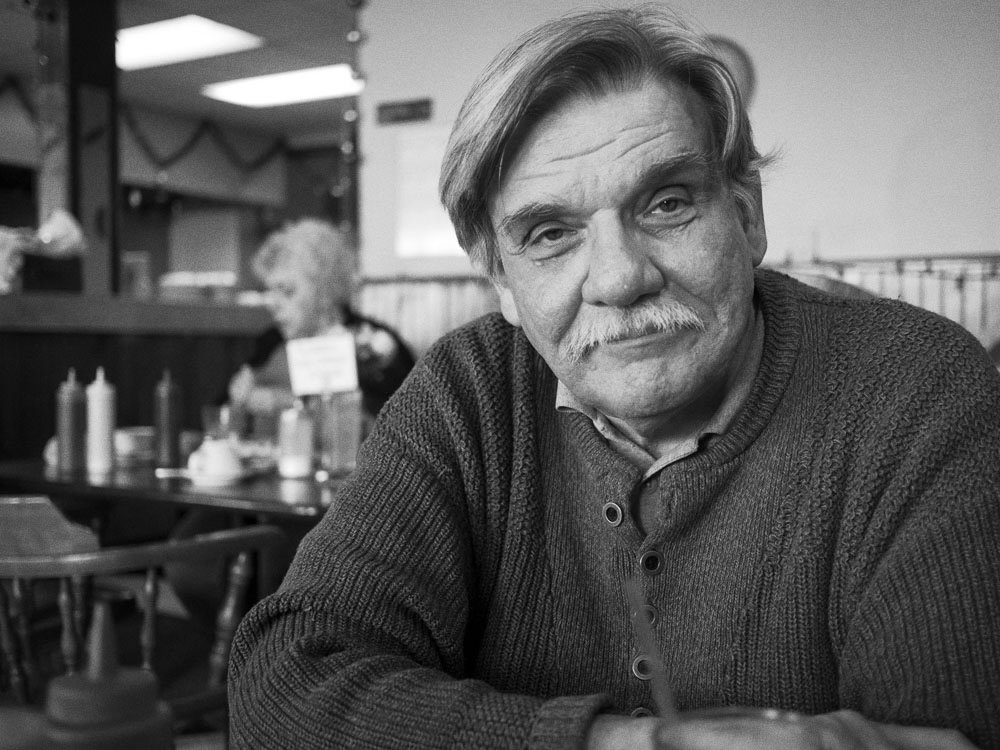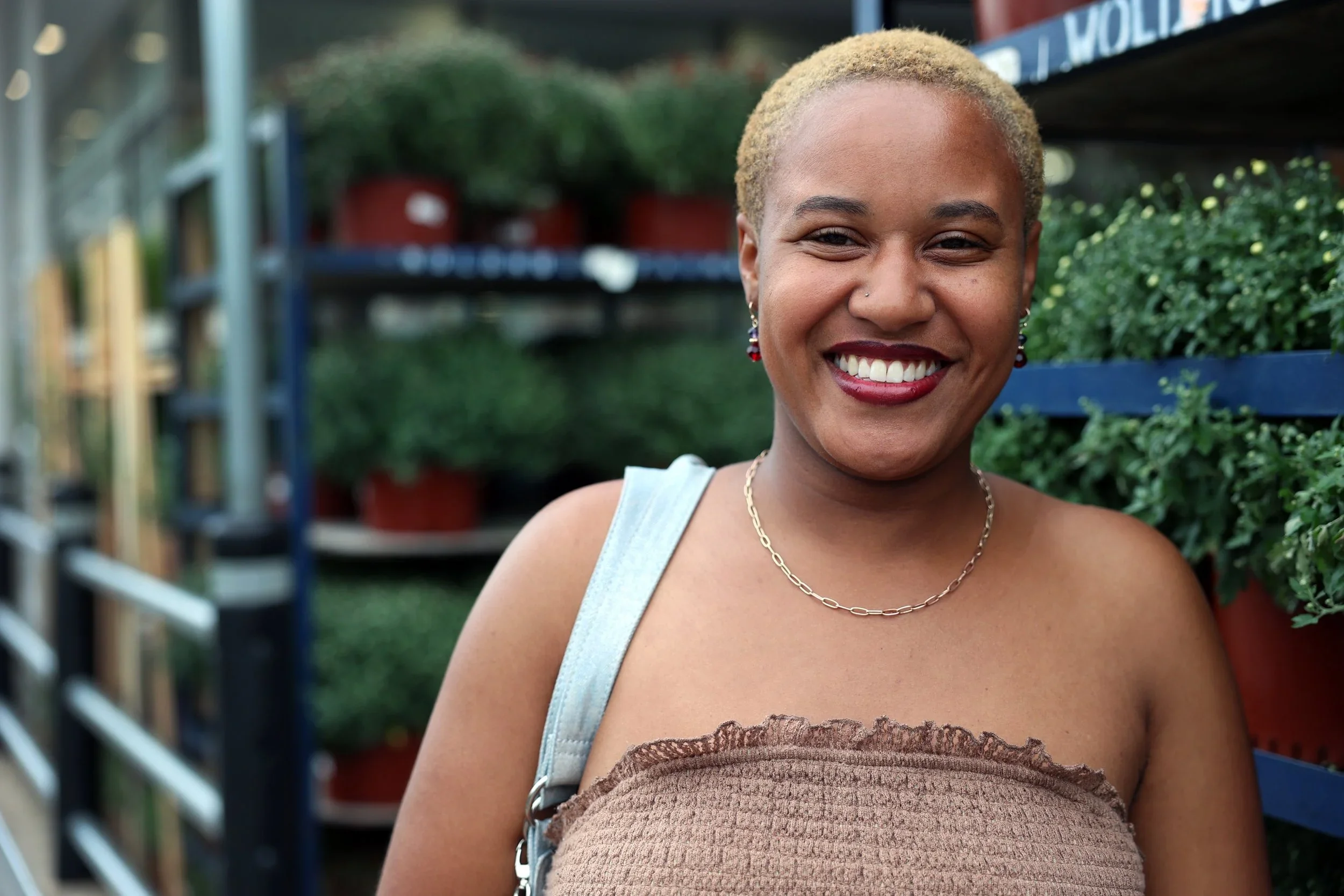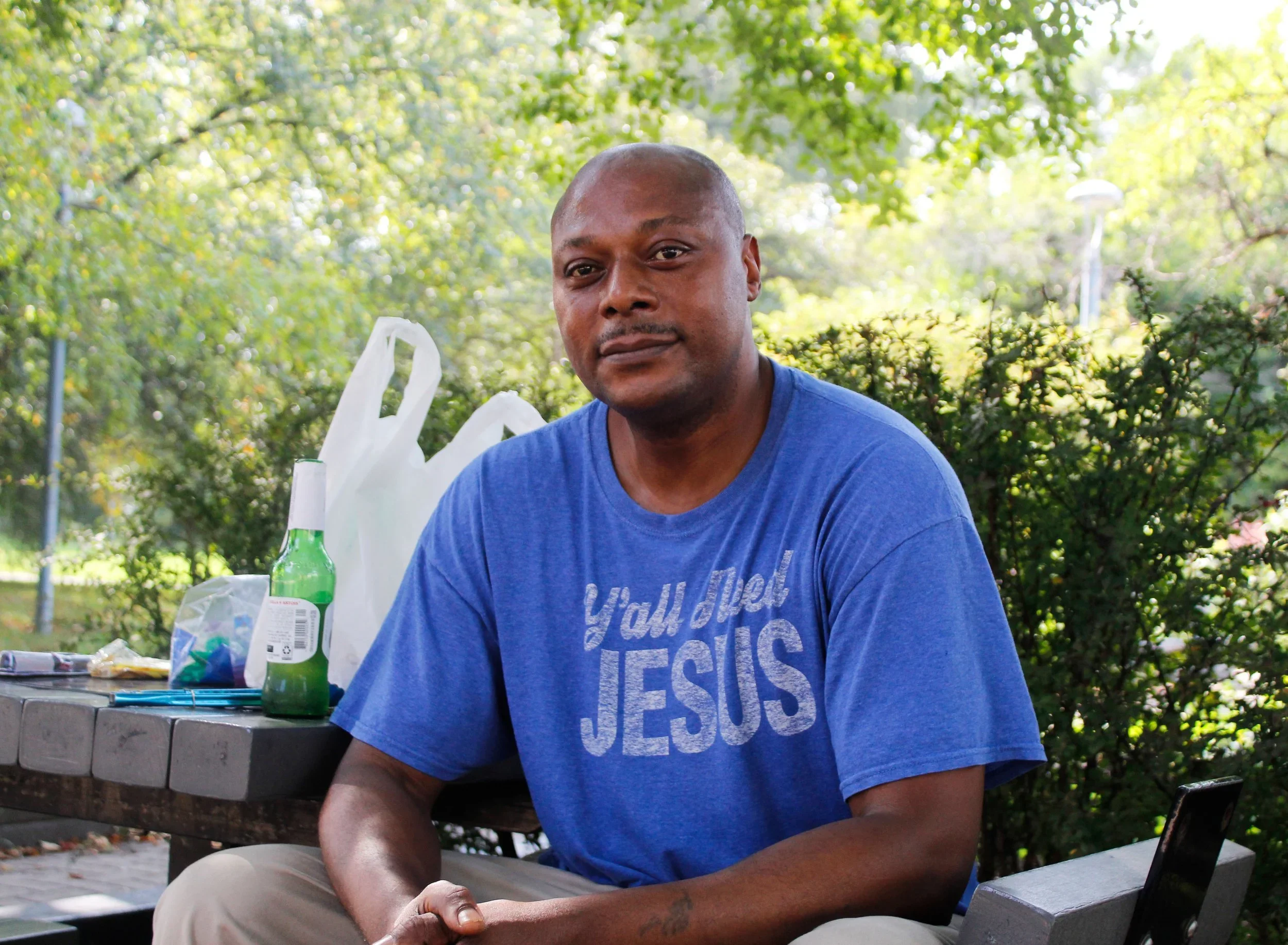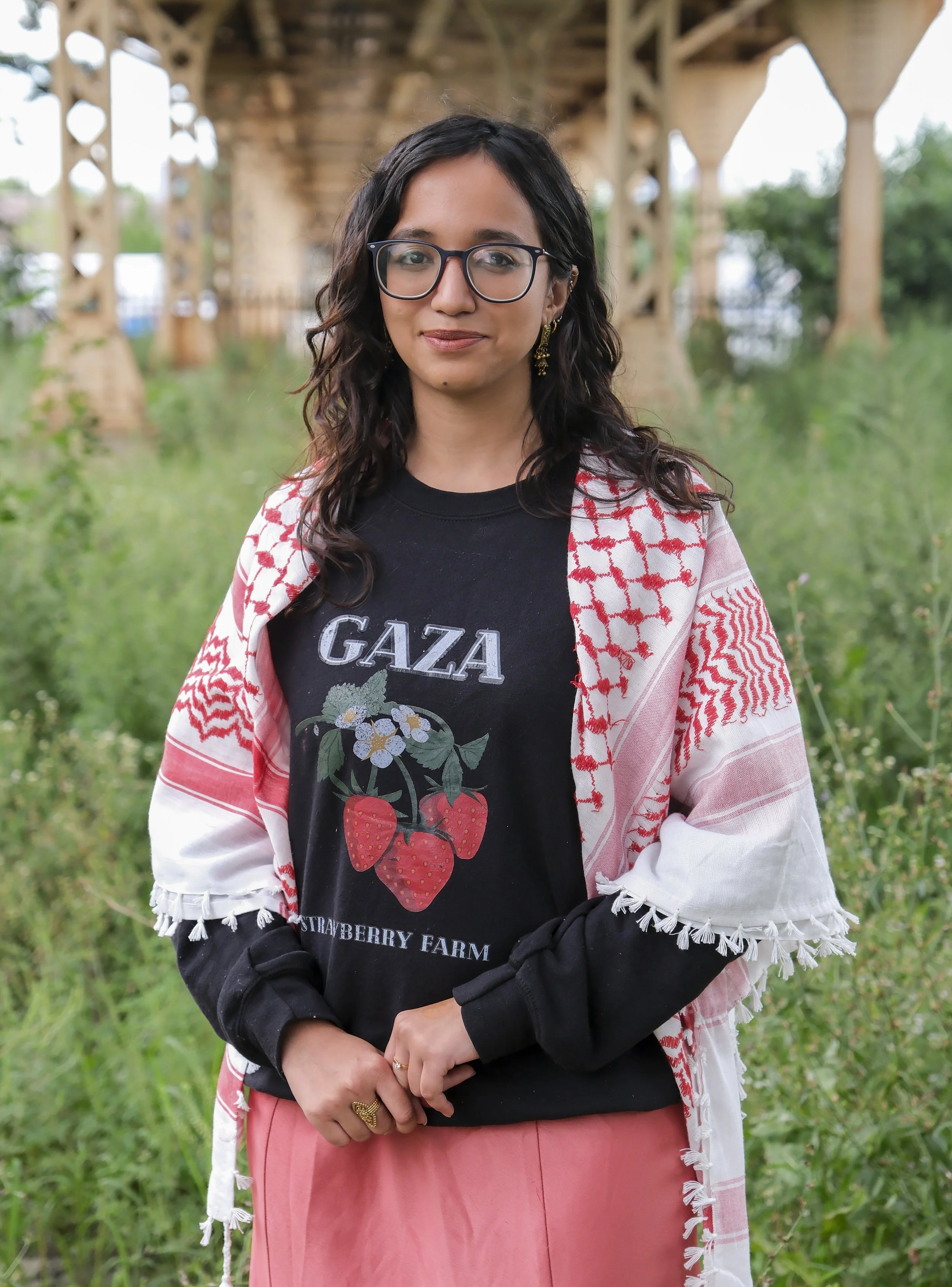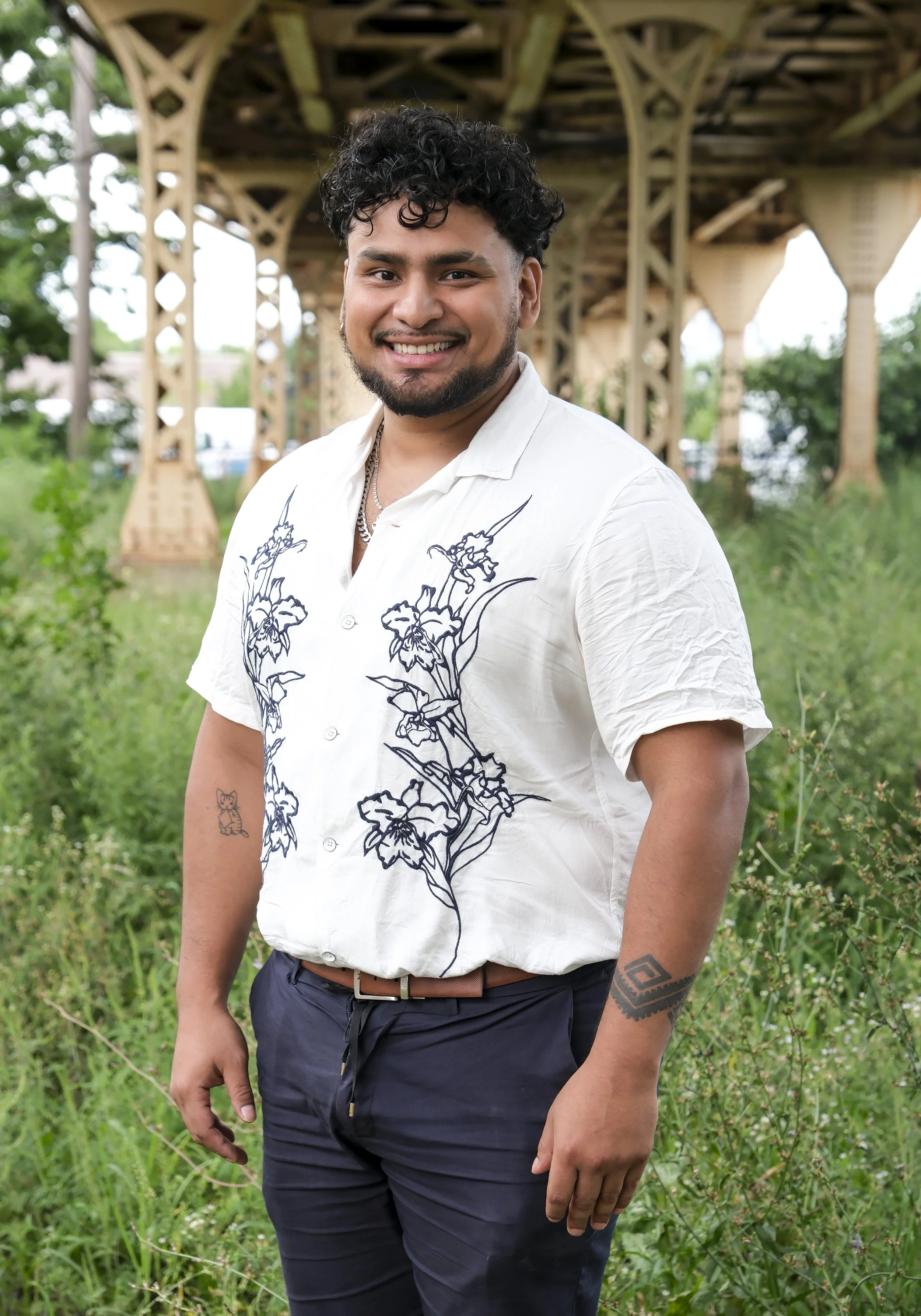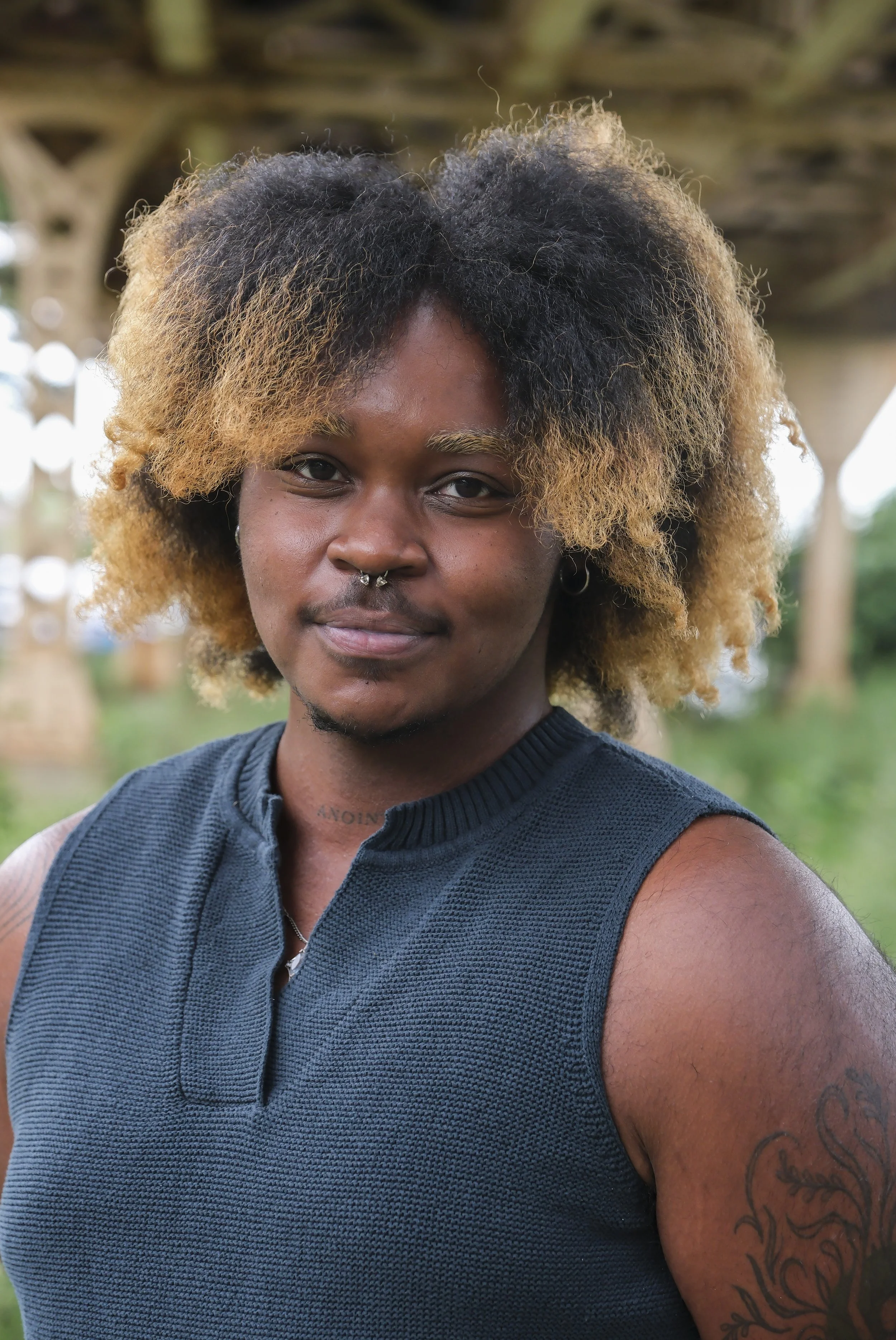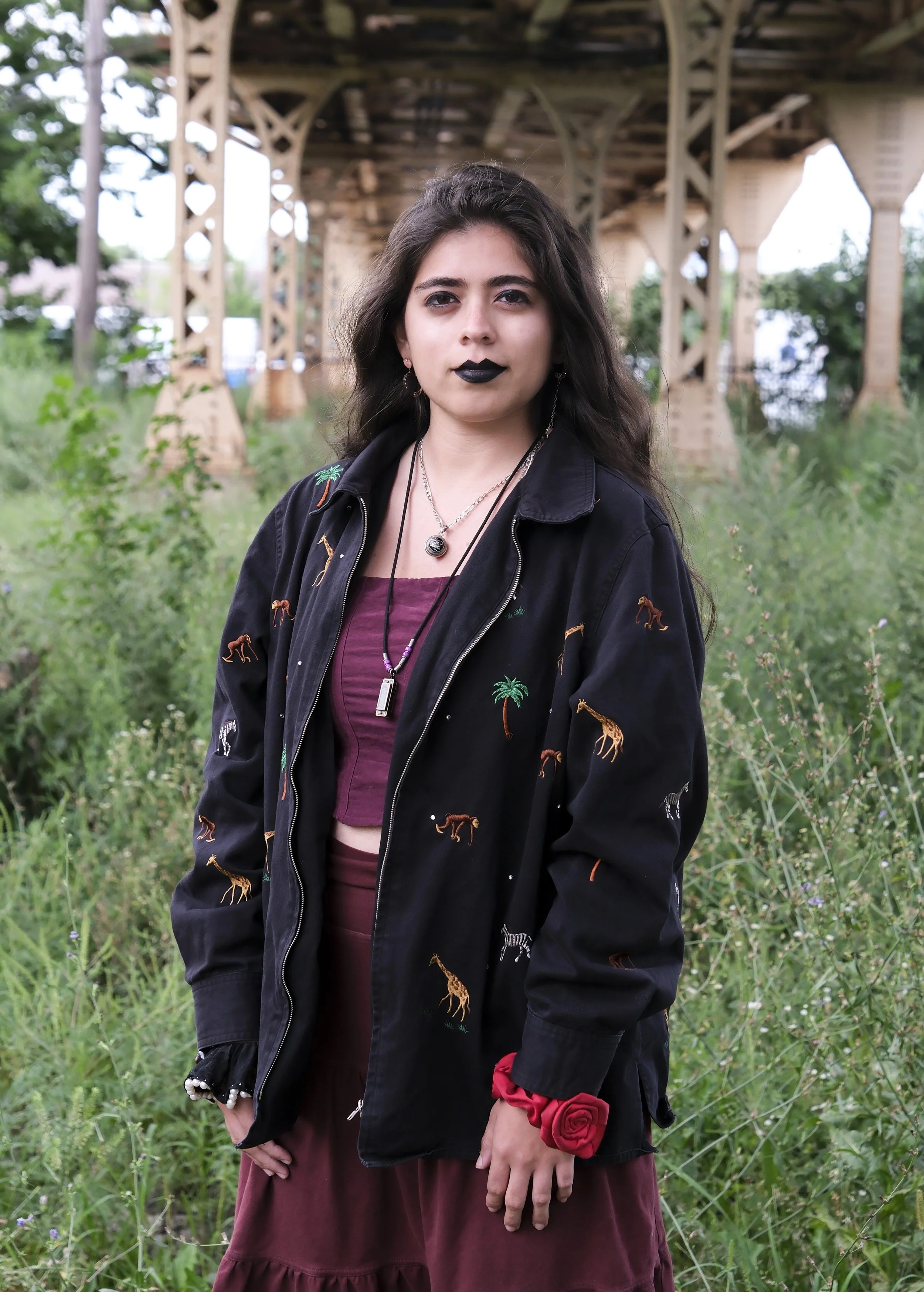Led by local journalist Siri Chilukuri, four emerging reporters are looking into the people, places and organizations bringing different generations together. They will explore how they work with varying viewpoints to facilitate collective action, how to live together and more.
Check back here to see what we find.
The Collective Art of Puppeteering
Underrepresented in the niche puppet scene, a community of Latino artists including Changosnakedog are leaning on one another for mentorship, and striving to make their performances accessible across generations, languages and music genres. Read the story.
Q&A: Rebuilding Intergenerational Communal Care in Chicago’s Black Queer Communities
Artist Zahra Baker came up in “a system of care” before the HIV/AIDS epidemic decimated communities. Now more than ever, Baker says forming lasting relationships is crucial. Read the story.
Q&A: A Chicago Puppeteering Trio is Working to Reach Intergenerational Audiences
Changosnakedog uses puppets, music and multiple languages to connect people across languages and generations. Founder Otto Anzures Dadda speaks on the group’s mission. Read the story.
Q&A: Helping Formerly Incarcerated People Heal Across Generations
The Inner-City Muslim Action Network’s Green ReEntry program brings younger people and elders together for mentorship and community care after prison. Chief Executive Director Alia Bilal discusses how leaders blend spirituality, justice, healing and community organizing to support people. Read the story.
Q&A: Chicago Historian Reflects on South Side Cross-Cultural Organizing
Dominic Pacyga, an urban historian and author, has researched immigration history for decades. As ICE raids hit local communities, he sees parallels to how different groups have mobilized around a common cause. Read the story.
From ‘Old School’ to Gen Z: Chicago Neighbors Talk Generational Change
Near West Side grocery shoppers describe how intergenerational ties are shifting — from church pews to chosen families — and what younger people are carrying forward on the South and West sides. Read the story.
‘The Community is Just Different’: How South Siders Combat Generational Division
Whether it’s through outreach or mentorship, many are eager to connect across age groups and pass down their knowledge and wisdom. Read the story.
Who Are We?
City Bureau Civic Reporting Fellows spend 16 weeks improving their journalism skills and immersing themselves in community reporting. (Staff photos by Pinar Istek/City Bureau; cover photo by Max Herman/for City Bureau)
Marium Asif
by Jorge Iván Soto
Marium Asif is a creative writer, poet and journalist from Karachi, Pakistan.
Asif has never shied away from navigating unconventional spaces. Her family hoped she would go into the medical field, but she had other aspirations. Brought up in a society where the West was framed as the savior, she arrived with the intent to dismantle that story.
Asif attended Habib University in Karachi as a liberal arts student. Her unconventional journey led to her shifting majors five times. She graduated with honors in communication and design before moving to the United States in August 2023 to pursue a master’s degree in creative writing from the School of the Art Institute of Chicago.
While Asif has explored many mediums outside of journalism, her personal life has taken her through “a journey of side quests,” including enjoying biking, parkour, violin, ceramics, aerial yoga and reading. She also is working on a novel based on Pakistani folklore and Abrahamic mythology.
She plans to return to Pakistan in 2026, hoping to integrate the lessons and experiences from City Bureau and beyond into her future reporting in Karachi.
Jorge Iván Soto
by Marium Asif
Jorge Iván Soto is an Indigenous Mexican-American.
The oldest of three, he moved back and forth between Perry, Iowa; and Morelos, Mexico, throughout his childhood. In his Iowa town of around 7,000 people, the steel mill and meatpacking industries dominated daily life. Soto noticed the contrast early: living near the plant also meant living close to poverty, while friends on the east side had big houses and parents at home to sign their book logs.
In 2020, more than half the workers at Perry’s Tyson plant, many of whom were undocumented, contracted COVID-19. Soto began writing op-eds and speaking on local media to advocate for the local workers.
“That’s what really radicalized me — living in a society where your worth is attached to your production and not just your existence,” Soto said.
At City Bureau, Soto hopes to bring an ethic he described as “cracking open a window, not throwing a stone into it,” aiming for journalism built on consent rather than extraction. In his free time, Soto sketches buildings, bikes and advocates for housing and public transit. He plays league soccer and DJs at local gigs.
His life philosophy is simple: “If I can use my body, my energy, my time to mitigate labor and expand people’s leisure, especially so families can be together, that’s what I want to do.”
Amari Amai Davis
by Zulema Herrera
Amari Amai Davis was born and raised in Chicago, growing up between Humboldt Park and Logan Square.
They attended Lane Tech College Prep High School and the University of Houston, receiving a degree in teaching and learning with an emphasis on early childhood instruction. After about five years of full-time classroom teaching, they are pursuing a full-time career as an artist and writer. They also have a teaching artist role with the Chicago Poetry Center.
Davis considers themselves a journalism novice, completing a fellowship in the Digital Storytelling Initiative at Invisible Institute in 2025. That fellowship allowed Davis to dive into other interests, such as memory and archival work, specifically with Black genealogy. Davis enjoyed the practice of piecing together their finds within that archival project so much that it brought Davis to City Bureau, eager to enhance their writing and journalism skills.
Starting this fellowship, Davis said they are a bit nervous about how this experience will force them to be vulnerable and courageous, diving into a new discipline with different stakes than creative writing.
“With a poem, I can throw anything on a page and make it sound how I want it to sound, but you can't do that in journalism; it has to be fact-checked,” Davis said. “Journalism takes a whole different angle to writing that I'm excited to get into.”
Outside of work, Davis enjoys reading, writing, playing instruments, and witnessing different forms of art. They also founded a Black Queer Writers collective in 2024 to create spaces for writers to cultivate their craft.
Zulema Luz Herrera
By Amari Amai Davis
Zulema Luz Herrera is a journalist who seeks to illuminate untold stories and excavate the nuance in stories already told.
Herrera grew up in Logan Square, Humboldt Park and Little Village. She is Chicana, a third-generation Mexican American with familial roots in Guadalajara and Michoacán.
She got her start in journalism at the University of Illinois Champaign-Urbana writing for The Daily Illini while pursuing a dual degree in journalism and Latino studies. During her time there, she worked to amplify the efforts of student organizations and publications that sought to improve the treatment of and resources for Latinx students on campus. She received a master’s in bilingual journalism from University of Arizona, where she explored documentary making and journalism in the context of Latinos in the United States and Latin America. She did a documentary on food insecurity in Tucson and created visual media for a local immigrant services organization.
Herrera comes from a lineage of activists and movement makers. When her uncle attended U of I, he was unintentionally thrown into a movement for his own rights as a Latino student that included a student takeover of a building on campus. Herrera hopes to carry on this legacy of activism by using civic journalism to inform herself and her community about the impact of the systems that shape our lives.
Herrera is excited about diving into writing-centered journalism as a City Bureau Civic Reporting fellow. She wants to elevate her journalism skills and learn how to create compelling and informative written work. She admires City Bureau’s efforts to make journalism accessible for folks of many different backgrounds and wants to build and maintain a journalistic practice that aligns with those efforts.
She loves to explore local libraries, archives and museums, as well as crocheting cute animals and foods. She plays a variety of instruments including the piano, harmonica, ukulele and guitar.
Siri Chilukuri
Siri Chilukuri’s journey into journalism started with her first love: science.
She has since focused her work on meaningfully contributing to the larger movement to solve climate change. At age 7, it meant mostly convincing everyone into recycling, but now it means telling the stories of the people causing climate change and the people most impacted by it.
She was most recently a Ben Bagdikian fellow at Mother Jones where she helped fact-check articles for the magazine and website as well as report and write articles.
Previously, she was an environmental justice fellow at Grist, where she wrote stories about coal transition and how a community reckons with legacy pollution. She also wrote about housing, labor, politics, and how all of these forces interact with climate change, and contributed to COP28 coverage.
Siri was a Civic Reporting fellow at City Bureau in 2022. Her team produced a package of stories about labor issues in temp work in manufacturing and warehousing on the South and West Sides.
In addition to her journalism, she volunteers with organizations like AAJA, The Uproot Project and Zenith Cooperative to increase the amount of journalists of color in the industry and help support them along the course of their careers.
(Photo by: Michael Izquierdo)


